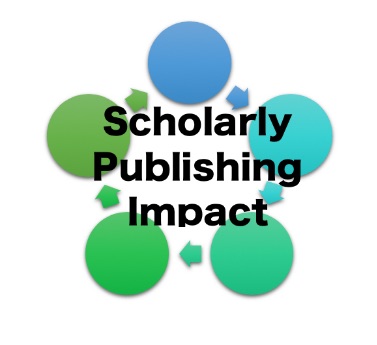
Scholarly Publishing Impact News is a regular news initiative spearheaded by the library’s Scholarly Communications Coordinator, Jennifer Beamer. Its purpose is to inform and educate on topics related to the scholarly publishing environment. If you have suggestions or questions for topics you would like to see in this news column, contact Jennifer Beamer.
On February 28, 2019, the University of California (UC) system (which accounts for approximately 10% of all U.S. publishing output) decided to cancel its Elsevier subscriptions after months of contract negotiations. Elsevier, the largest scholarly publisher in the world, owns many publishing related infrastructures (for example, Mendeley, SSRN, and bepress/DigitalCommons). The main sticking point in negotiations was Elsevier’s decision to only allow Open Access options to UC authors by charging publishing fees for Open Access versions (a.k.a, “article processing charges” or APCs) on top of the university’s multi-million-dollar Elsevier subscriptions. During its latest negotiations with Elsevier, UC had proposed contract terms to integrate their subscription charges and open access publishing fees in order to make open access the default for all articles written by UC researchers. The Academic Senate issued a statement endorsing this, as did the UC Office of the President. Nevertheless, Elsevier rejected UC’s proposal, which led UC to leave the negotiating table and cancel their subscriptions.
The break between UC and Elsevier was not sudden. Since 2003, UC faculty and librarians have been a driving force in exploring ways to be more committed to open access. Their work includes enacting an Open Access Policy in the UC Academic Faculty Senate that supports open access in the promotion and tenure process, and educating faculty on depositing their research legally via Green Open Access. Author self-archiving of pre-prints is called “Green Open Access” to distinguish it from the other primary way of publishing open access, which is to publish in an open access journal.
The ultimate goal of UC has been to create a long-term strategy to make their research immediately available to readers at no cost. The UC Libraries’ Office of Scholarly Communication has partnered with faculty in many ways to help them fill the gap in finding Elsevier-published articles as well as participating more fully in Open Access practices. UC faculty have been asked to first attempt to find an open access copy of Elsevier publications:
- Via Google Scholar,
- By using the Open Access Button or Unpaywall
- By searching online subject repositories (such as OSF Preprints which searches multiple preprint services, arXiv, bioRxiv, RePEc or SSRN)
- By requesting articles directly from the author
- By making a request to the author via Twitter using the hashtag #icanhazpdf with a link to the publication they need
- UC faculty may request articles through their library’s Interlibrary Loan request service (ILL). However, the cost of requesting individual articles via ILL is expensive and not a sustainable alternative to journal subscriptions (and there are also limits on the number of requests that can be made per journal).
At The Claremont Colleges, we also have robust subscriptions with Elsevier. Does this mean we will be cancelling our subscription too? No! But we will be watching how UC maintains their support of open access and if Elsevier changes its subscription model.
Here at The Claremont Colleges, the library can help you with pathways to Open Access:
- Finding Open Access copies of research
- Finding Open Access journals to publish in
- Depositing your own work via Green Open Access in our institutional repository, Scholarship@Claremont
- Helping you understand and negotiate your copyright
- Advising on how to get the widest possible distribution and impact of your work in the scholarly community
Stay tuned for future articles in the Scholarly Publishing Impact series! Next time: APCs and Green OA: Why do I have to pay to have my work openly accessible?
Jennifer Beamer, Scholarly Communications Coordinator
For more information, contact scholarship@claremont.edu or read more about Open Access to scholarly research.